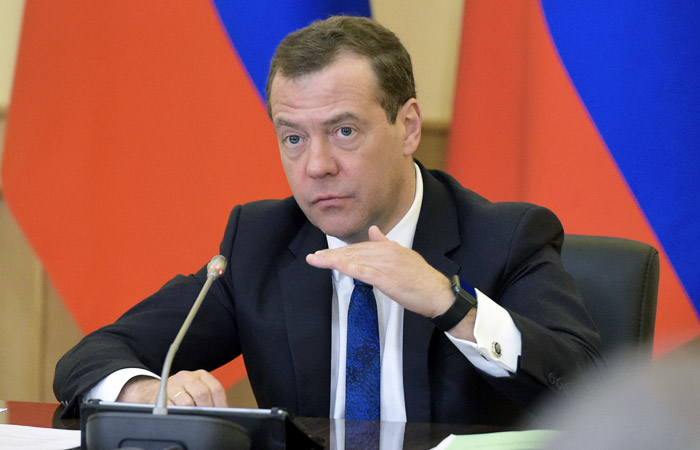According to international and russian media reports, Russia’s bourgeois government wants to raise the retirement age for both men and women and to increase value-added tax, unpopular measures it hopes will ease pressure on state finances, Prime Minister Dmitry Medvedev said on Thursday.
As Reuters has reported, Russian officials, including President Vladimir Putin, have long talked about raising the retirement age but have shied away from doing so, in part because such measures risk stirring up popular discontent and damaging politicians’ popularity.
However, Medvedev said on Thursday that the government, which Putin re-appointed last month after his own re-election for another six-year term, was now facing a shrinking workforce and had to act to protect the budget.
Medvedev said the government wanted to increase the retirement age for men to 65 from 60 years of aged and for women to 63 from 55. The changes would be introduced gradually, starting in 2019.
Medvedev said the government also wanted to raise value- added tax to 20 percent from 18 percent. That increase could add at least an extra 600 billion roubles (£7.2 billion) a year to government revenue, said First Deputy Prime Minister Anton Siluanov.
He said a higher rate of VAT would lead to higher prices, adding 1.5 percent to the consumer inflation index.
Experts at the Presidential Academy for Economy and Public Administration have suggested a more moderate pension reform, raising the retirement age more slowly and to a lower level, pointing out that the model proposed by the government included “very high demographic and social risks”.
From its side, the Confederation of Labour of Russia, a labour union alliance, said on Thursday that there was “no basis” for increasing the retirement age. “Under the current demographic trends, around 40 per cent of men and around 20 per cent of women do not live until 65 years of age,” the group said in a petition.
The new antipeople, antiworker initiative of the Russian government to raise retirement age limits consists another effort towards the destruction of social state and welfare.
It must be noted that in the Soviet Union the retirement age for women was 55 and for men it was 60 and once people reached that age they were guaranteed a pension and extensive welfare benefits. Furthermore, people who were working in harmful or dangerous conditions retired at 50-55 years for men, and 45-50 years for women.


